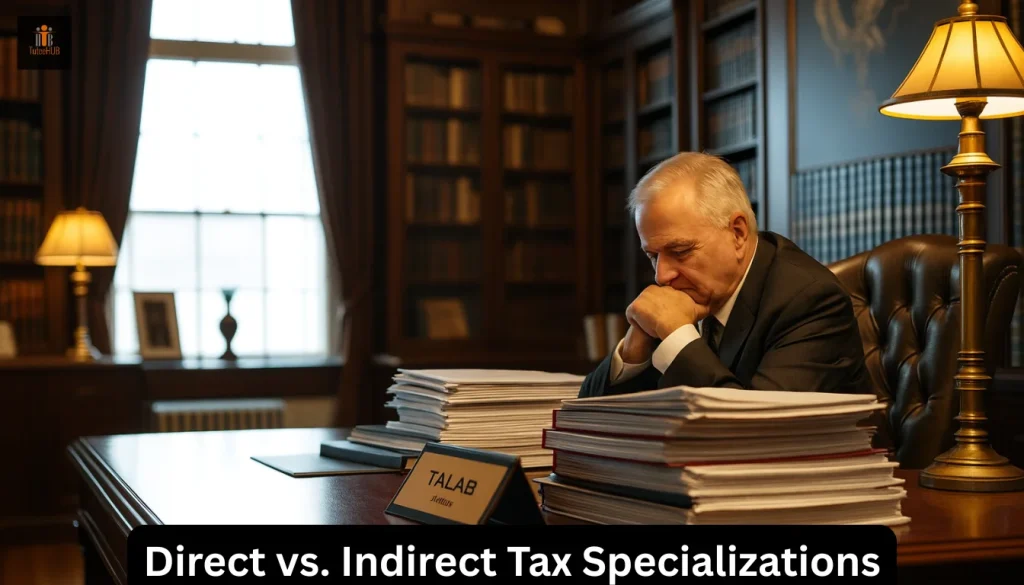Tax Lawyer in India requires a deep understanding of laws and a specific set of qualifications. As I guide you through this comprehensive process, you'll learn the steps to pursue this rewarding career.
Tax Lawyer
I will walk you through the necessary qualifications and course fees associated with becoming a tax professional. Whether you're just starting or looking to specialize, this guide has got you covered.
Key Takeaways
- Understand the qualifications required to become a Tax Lawyer in India.
- Learn about the course fees associated with law programs.
- Discover the steps to pursue a career in law.
- Explore the specializations available in law.
- Get an overview of the Indian law landscape.

The Role and Importance of Tax Lawyers in India
lawyers in India are instrumental in guiding individuals and businesses through the ever-changing landscape of regulations. As a lawyer, my daily practice involves a range of activities that are crucial for the smooth operation of businesses and the compliance with laws.
What Tax Lawyers Do in Daily Practice
I interpret laws, advise clients on implications, and represent them in disputes. This involves staying updated on the latest law changes, analyzing financial data, and communicating effectively with clients.
The Growing Demand for Tax Legal Expertise
The demand for legal expertise is growing due to the complexity of laws and the need for businesses to comply with them. As laws become more intricate, the role of lawyers becomes increasingly vital.
Key Responsibilities and Client Interactions
My key responsibilities include providing planning advice, representing clients in audits and disputes, and ensuring compliance with regulations. Effective client interactions are crucial, requiring clear communication of complex concepts.
Key Responsibilities | Client Interactions |
Planning and advice | Clear communication of complex tax concepts |
Representation in audits and disputes | Understanding client needs and concerns |
Ensuring compliance with regulations | Providing timely and relevant advice |
Educational Pathway to Becoming a Tax Lawyer
To succeed as a lawyer, one must navigate the educational pathway that includes both foundational law degrees and specialized law education. This journey is crucial for building a strong foundation in law and preparing for a successful career.
Bachelor of Laws (LL.B.) Requirements
The first step towards becoming a lawyer is obtaining a Bachelor of Laws (LL.B.) degree from a recognized institution. The LL.B. program provides a comprehensive understanding of law, including core subjects such as constitutional law, contract law, and criminal law. It is essential to choose an institution recognized by the Bar Council of India to ensure eligibility for enrollment as an advocate.
Master of Laws (LL.M.) in Taxation
For those looking to specialize in law, pursuing a Master of Laws (LL.M.) in Taxation can be highly beneficial. This advanced degree offers in-depth knowledge of laws, including direct and indirect taxation, international taxation, and planning. An LL.M. in Taxation can significantly enhance one's expertise and career prospects in law.
Alternative Educational Routes
Apart from traditional law degrees, there are alternative educational routes that can complement one's knowledge in taxation. Diploma courses in taxation, offered by various institutions, can provide specialized knowledge in specific areas of law. These courses are particularly useful for those looking to gain practical skills in planning and compliance.

Degree/Course | Specialization | Duration |
LL.B. | General Law | 3 years |
LL.M. | Taxation | 2 years |
Diploma | Taxation | 6 months - 1 year |
Tax Lawyer Education Pathway
In conclusion, becoming a lawyer requires a well-structured educational pathway that includes both foundational law degrees and specialized law education. By pursuing the right academic and professional milestones, aspiring lawyers can build a successful career in this field.
Essential Qualifications for a Tax Lawyer in India
To practice as a lawyer in India, one must meet specific qualifications and registration requirements. As I delve into the details, it becomes clear that the process involves both academic achievements and professional certifications.
Academic Qualifications and Degrees
The foundational step towards becoming a lawyer is obtaining the necessary academic qualifications. Typically, this involves earning a Bachelor of Laws (LL.B.) degree from a recognized institution. Some aspiring lawyers may also choose to pursue a Master of Laws (LL.M.) in Taxation for advanced knowledge.
Professional Certifications and Examinations
Beyond academic degrees, obtaining professional certifications is crucial. This may include clearing specific exams related to law or certifications offered by reputable professional bodies.
Bar Council Registration Process
Registration with the Bar Council of India is a mandatory step. This process involves several key components:
- Submitting required documents, such as degree certificates and identification proof.
- Paying the prescribed registration fees.
- Adhering to the specified timeline for registration.
Documentation Requirements
The documentation required for Bar Council registration typically includes academic transcripts, degree certificates, and identity proof. Ensuring that all documents are in order is crucial for a smooth registration process.
Registration Fees and Timeline
The registration fees and timeline can vary, so it's essential to check with the Bar Council of India for the most current information. Generally, the registration process is completed within a few weeks
Tax Lawyer Qualification
Tax Lawyer Course Fees and Educational Investment
Pursuing a career as a tax lawyer in India requires a significant investment in education. As I explore the various costs associated with this career path, it becomes clear that understanding these expenses is crucial for aspiring lawyers.
Law School Tuition Costs at Top Indian Universities
The cost of attending law school in India varies significantly across institutions. Top universities like the National Law School of India University (NLSIU) and the West Bengal National University of Juridical Sciences (WBNUJS) charge tuition fees ranging from ₹1.5 lakhs to ₹3 lakhs per annum for their undergraduate programs.
Specialized Tax Law Course Expenses
For those interested in specializing in law, additional courses can add to the overall expense. These specialized programs can cost anywhere from ₹50,000 to ₹2 lakhs, depending on the duration and the institution offering the course.
Financial Aid and Scholarship Opportunities
To mitigate these costs, numerous financial aid and scholarship opportunities are available. Many law schools offer merit-based scholarships, and government bodies provide loans for professional education.
Return on Investment Analysis
When considering the investment in a law education, it's essential to analyze the potential return on investment. The following table provides a simplified breakdown of the costs and potential earnings:
Category | Cost/Earnings |
Law School Tuition (4 years) | ₹6 lakhs - ₹12 lakhs |
Specialized Law Course | ₹50,000 - ₹2 lakhs |
Average Starting Salary | ₹6 lakhs - ₹10 lakhs per annum |
Mid-career Salary | ₹15 lakhs - ₹25 lakhs per annum |
By understanding these costs and potential earnings, aspiring lawyers can make informed decisions about their educational investment.
Developing Specialized Law Expertise
In the realm of law, having specialized expertise can make a significant difference in providing high-quality services to clients. As laws continue to evolve, the need for lawyers with in-depth knowledge in specific areas of law is becoming increasingly important.
Direct vs. Indirect Tax Specializations
lawyers can choose to specialize in either direct or indirect law. Direct law deals with taxes on income and profits, while indirect law focuses on taxes on goods and services. Specializing in one of these areas requires a deep understanding of the respective laws and regulations.

International Law Focus
With globalization, international law has become a critical area of specialization. Lawyers with expertise in international law are in high demand, as they can navigate the complexities of cross-border taxation.
Continuing Education Requirements and Options
Continuing education is essential for lawyers to stay updated on the latest developments in law. There are various options available, including:
- Mandatory Continuing Legal Education (MCLE) programs
- Advanced Certification Programs in Law
- Workshops and seminars on law updates
Mandatory Continuing Legal Education
MCLE programs are designed to ensure that lawyers stay current with the latest legal developments. These programs often include courses on law updates, which are crucial for lawyers.
Advanced Certification Programs
Advanced certification programs in law offer specialized training that can enhance a lawyer's expertise. These programs are usually offered by reputable institutions and can significantly boost a lawyer's credentials.
Specialization | Description | Benefits |
Direct Law | Deals with taxes on income and profits | Expertise in handling income tax cases |
Indirect Law | Focuses on taxes on goods and services | Knowledge of GST and other indirect taxes |
International Law | Handles cross-border taxation issues | Ability to navigate complex international tax laws |
How to Become a Corporate Tax Lawyer in India
Pursuing a career as a corporate lawyer in India demands a strong foundation in law and a willingness to adapt to changing regulations. As a corporate lawyer, you'll play a crucial role in helping businesses navigate the complexities of laws and minimize their liabilities
Corporate Tax Law Specialization Path
To become a corporate tax lawyer, you'll need to follow a specialization path that includes gaining knowledge in corporate law. This involves understanding the intricacies of laws, including direct and indirect taxes, and staying updated on the latest reforms. "The complexity of laws requires a deep understanding of the subject matter," says a leading expert.
Required Skills and Knowledge Base
A corporate lawyer must possess a strong knowledge base in tax laws, as well as skills such as analytical thinking, problem-solving, and communication. You'll need to be able to analyze complex data, identify potential savings opportunities, and effectively communicate with clients.
Internship Opportunities with Corporate Law Firms
Gaining practical experience through internships with corporate law firms is essential for building a successful career as a corporate lawyer. These internships provide valuable hands-on experience and exposure to real-world scenarios.
Building Corporate Tax Law Experience
Building corporate law experience involves working with multinational corporations and handling corporate disputes. You'll need to be able to navigate the complexities of international laws and develop strategies to minimize liabilities.
Working with Multinational Corporations
Working with multinational corporations requires a deep understanding of international laws and regulations. You'll need to be able to advise clients on planning strategies and ensure compliance with laws.
Handling Corporate Tax Disputes
Handling corporate tax disputes involves resolving tax-related conflicts between clients and tax authorities. You'll need to be able to negotiate with authorities and develop strategies to resolve disputes in a timely and efficient manner.
Tax Lawyer Salary and Compensation in India
The compensation for lawyers in India varies widely based on factors like experience, location, and employment type. As a profession that requires specialized knowledge and skills, law is a lucrative field with diverse opportunities.
Entry-Level Salary Ranges by Region
For those just starting their careers, entry-level tax lawyer salaries in India can range from ₹8 lakhs to ₹12 lakhs per annum, depending on the region. Major cities like Mumbai and Delhi tend to offer higher salaries compared to smaller towns.
Mid-Career Earnings Potential
As tax lawyers gain experience, their earning potential increases significantly. Mid-career lawyers can earn between ₹20 lakhs to ₹35 lakhs per annum, with top firms and corporate entities offering the highest salaries.
Senior Tax Lawyer Compensation Packages
Senior tax lawyers, with their extensive experience and expertise, can command salaries ranging from ₹50 lakhs to over ₹1 crore per annum. Their compensation packages often include additional benefits like bonuses and profit-sharing.
Private Practice vs. Corporate Employment Comparison
Tax lawyers in private practice can potentially earn more than their counterparts in corporate employment, as their earnings are directly tied to their client base and the success of their practice. However, corporate employment offers stability and additional benefits.
In conclusion, the salary and compensation for tax lawyers in India are influenced by a variety of factors, including experience, location, and the nature of their employment. Understanding these factors is key to navigating a successful career in law.
Practical Steps After Qualifying as a Tax Lawyer
As a newly qualified lawyer, you're faced with a multitude of career options that can shape your professional future. The path you choose will depend on your interests, skills, and long-term goals.
Joining an Established Law Firm
One common route is joining an established law firm. This provides the opportunity to work with experienced professionals, gain practical experience, and build a network of contacts. Top law firms often have dedicated departments with a range of clients and projects.
Starting Your Own Tax Law Practice
Alternatively, you might consider starting your own law practice. This path allows for greater autonomy and the ability to build a practice tailored to your expertise and interests. However, it also involves significant challenges, including building a client base and managing the business side of the practice.
In-House Counsel Opportunities
Another option is to work as in-house counsel for a corporation. This role involves managing the company's affairs, providing advice, and ensuring compliance with laws. It's a great way to gain industry-specific knowledge and work closely with business leaders.
Government and Regulatory Positions
Government and regulatory positions are also available for tax lawyers. These roles can involve drafting legislation, advising government agencies, or working in authorities. They offer the chance to influence policy and contribute to the development of the system.
Career Path | Key Benefits | Challenges |
Joining an Established Law Firm | Gain experience, build network | High competition, demanding workload |
Starting Your Own Practice | Autonomy, tailored practice | Building client base, business management |
In-House Counsel | Industry-specific knowledge, close with business leaders | Limited to one company, potential for limited tax law exposure |
Government and Regulatory Positions | Influence tax policy, contribute to tax system development | Bureaucratic processes, high responsibility |
Building a Successful Tax Lawyer Career
Building a thriving career as a lawyer requires more than just knowledge of laws; it demands a robust network, a specialized client base, and a strong digital presence.
Networking in the Tax Law Community
Networking is a crucial step in establishing a successful lawyer career. It involves connecting with other professionals in the field, attending industry conferences, and participating in relevant associations. As noted by a renowned tax expert, "Networking is not just about collecting contacts; it's about building meaningful relationships that can lead to new opportunities."
Developing a Specialized Client Base
Developing a niche expertise can significantly enhance a lawyer's career prospects. By focusing on a specific area, such as corporate or international law, a lawyer can attract a dedicated client base. Specialization not only increases credibility but also allows for more effective marketing and client service.
Professional Development Strategies
Continuing education is vital for lawyers to stay updated on the latest laws and regulations. Engaging in professional development activities, such as workshops, seminars, and online courses, can enhance a lawyer's skills and knowledge. As emphasized by a leading law firm, "Staying ahead of the curve in law requires a commitment to ongoing learning and professional growth."
Digital Presence and Personal Branding
In today's digital age, having a strong online presence is crucial for lawyers. This includes maintaining a professional website, engaging on social media platforms, and producing relevant content. Personal branding helps differentiate a lawyer from competitors -and can attract potential clients. A well-crafted digital presence can significantly enhance career prospects.
By focusing on these key areas, lawyers can build a successful and sustainable career. It's about creating a balance between professional knowledge, networking, and personal branding.
Conclusion: Your Path to Becoming a Successful Tax Lawyer in India
Becoming a successful tax lawyer in India requires a combination of the right education, qualifications, and experience. By following the steps outlined in this guide, aspiring lawyers can set themselves on the path to a rewarding career.
To establish a successful career path, it's essential to stay updated on law changes and continually develop one's expertise. This can be achieved by pursuing continuing education opportunities, networking with peers, and building a strong professional network.
As a successful lawyer, you will be well-equipped to navigate the complexities of Indian tax law and provide valuable guidance to clients. By staying focused on your career path and continually striving for excellence, you can achieve long-term success and build a reputation as a leading lawyer in India.










Comments(0)